news
How Abba Kyari’s health relapsed hours before scheduled discharge
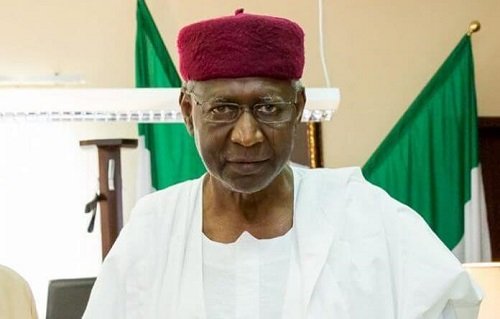
 •Lagos State opens up on how he died
•Lagos State opens up on how he died
•Witnesses report seeing massive police presence at hospital where he died
•He had no consultations with PTF, NCDC before going for private treatment
The late Chief of Staff to the President, Mallam Abba Kyari, was hours from being discharged from the hospital on Friday before his condition unexpectedly took a twist and he never recovered, we gathered on Sunday.
Kyari died at First Cardiology Consultants Hospital in Lagos on Friday from what the Lagos State government yesterday described as complications of Coronavirus infection.
Witnesses told us yesterday of massive police presence at the private facility on the fateful day, apparently after he was certified dead.
Sources said Kyari had shown signs of recovery which was a sign that he could be discharged only for his condition to take a plunge.
It was learnt that he even received some members of his family Wednesday in the hospital and walked around his isolation area to show his fitness.
Members of the family were said to be expecting his discharge on Friday.
The complications in his health were said to have arisen from diabetes and respiratory tract infections.
The Lagos State government confirmed last night that Kyari died of complications.
It was also learnt that the late Chief of Staff neither consulted the Presidential Task Force on the campaign against COVID-19 nor the Nigeria Centre for Disease Control (NCDC) deciding on private treatment in Lagos.
Officials of PTF and NCDC only read the announcement of his relocation to a private hospital in Lagos like other Nigerians.
It was gathered that he did not avail himself of expertise advice by NCDC and medical teams.
A source said the family was confident that Kyari would survive the Coronavirus Disease.
The source said: “As at Wednesday, Kyari was seen walking round his isolation area when some members of his family came on a visit. His health improvement gave a ray of hope that he was fast recovering.
“In fact, words had gone round to his relations that he might be discharged on Friday. But he died following relapse, occasioned by diabetes and respiratory tract infections in the evening of Friday. How his condition changed for the worse shocked all the medics around him. He died between 9pm and 10 pm.
“So, he died of COVID-19 and underlying factors or complications.”
Lagos State Health Commissioner Akin Abayomi confirmed that Kyari died of complications
The statement said: “Following enquiries on the passing away of the Chief of Staff to the President of the Federal Republic of Nigeria, Mallam Abba Kyari on Friday 17th April 2020, the Lagos State Government states that:
“Mallam Abba Kyari died from complications of Coronavirus infection at First Cardiology Consultants in Lagos. This hospital is a Lagos State designated high care, biosecurity-compliant, COVID-19 facility, accredited by the Health Facility Management and Accreditation Agency (HEFAMAA) of the Lagos State Ministry of Health.
“As a basis for accreditation, First Cardiology Consultants established a separate specialist wing with staff dedicated to the treatment of complicated cases of COVID-19, under the supervision of the Lagos State COVID-19 emergency response team.”
Kyari didn’t consult PTF, NCDC
Newsthumb was also told that the late Kyari did not consult either the Presidential Task Force (PTF) on COVID-19 or the Nigeria Centre for Disease Control (NCDC) before opting for personal treatment.
A top source said: “We read his statement on his decision to move to Lagos for private treatment like every Nigerian. He did not seek any advisory from the PTF and NCDC.
“And since he said he did not want to overburden the public health sector, we allowed him to have his way. We could not have stopped him because it was a private health option and he went to a designated hospital for COVID-19 treatment.
“We respected his decision because of underlying health challenges he had which he wanted the hospital to manage with COVID-19.
“It was not the Federal Government that took him to the First Cardiology Consultants hospital in Lagos.
“In essence, he was not NCDC patient in the real sense of it.”
Witnesses: ‘We saw massive police presence at FCC’
Two Sports Utility Vehicles (SUVs) with plenty policemen and two ambulances were seen Friday evening at First Cardiology Consultant (FCC) Hospital in Ikoyi, Lagos State, the private facility where Mallam Abba Kyari died, The policemen, according to witnesses, were later allowed into the hospital through the back gate.
It was gathered that the massive presence of policemen in the usually calm neighbourhood, raised anxiety among the people and suspicion that a top government functionary was in a critical condition.
Newsthumb gathered that the policemen who were inside the SUV, alighted at the front gate, went inside and later returned with some officials to lead the vehicles through the back gate.
Investigation showed that Kyari’s presence in the hospital was treated with topmost secret.
From the main entrance to the hospital, it was observed something unusual occurred as the guards were very suspicious of movements around the facility.
At the gate, a notice indicating that the hospital does not handle COVID-19 cases was clearly pasted while visitors were notified of conditions to meet before entry can be granted.
Some relatives of patients were seen waiting inside their vehicles outside while a fruit seller displayed his wares inside a barrow just by a tree between the hospital and the British Council.
A woman who spoke to our correspondent said they saw the SUV between 3pm and 4pm when they brought in her aunt.
She said: “We saw a lot of police people who came in two SUVs and there were also two ambulances with them. They were let in through the back gate. We did not know the person they came for but it was obvious it must be a top government person.
“This hospital does not allow visitors in. They do not even allow relatives of patients to come and stay with their loved ones. They only give you five minutes for visiting and after that, you come out.
“People are screened before they go in and they make it clear that they do not treat COVID-19 patients. Before they took our relative who had difficulty breathing and was on oxygen, we were asked to go for COVID-19 screening first.
“It takes three days for the result to come out and we had to wait. It was when the result came back negative that they accepted to treat our relative.
“So, people are surprised to discover now that Mallam Kyari who was publicly known to have COVID-19 was admitted here.”
A security man corroborated the woman’s story, adding that they were yet to understand what happened yesterday.
“It is true we saw so many policemen who came inside two SUVs on Friday evening. But we do not know what they came for. This hospital is very big and those who come here are rich people. As I am out here, I do not know what transpires inside and I cannot go and ask questions that could be suspicious,” he said.
When our Correspondent contacted the hospital on telephone after access to the premises was denied, it denied Kyari died in their hospital.
“Abba Kyari neither received treatment nor died in our hospital,” a front desk worker who picked the telephone echoed.
EU, ECOWAS pay tribute
The Head of the EU Delegation to Nigeria and ECOWAS Ambassador Ketil Karlsen, said he was “deeply saddened to hear about the passing of Abba Kyari.
“My thoughts are with his family. He became a friend and was an inspiration with his passionate approach to development of Nigeria in general and the north in particular. May his soul rest in eternal peace.”
The Nigerian Supreme Council for Islamic Affairs (NSCIA), in a statement by its Secretary-General, Prof. Is-haq Oloyede, said Kyari was an excellent administrator.
It said: “The Nigerian Supreme Council for Islamic Affairs (NSCIA) under the leadership of its President-General and Sultan of Sokoto, His Eminence, Alh. Muhammad Sa’ad Abubakar, received the news of the death of Alh. Kyari with great shock.
“The late Chief of Staff was an excellent administrator who was committed to the overall development of the nation through dedicated and loyal service not only to President Muhammadu Buhari, but also to the Nigerian nation.
“The Nigerian Supreme Council for Islamic Affairs commiserates with the President and government of Nigeria on this grievous occasion.
“It is the prayer of the Ummah in Nigeria that Almighty Allah would grant the departed Chief of Staff Al-jannah Al-firdaus. Amin.”
On his part, Senator Mohammed Ali Ndume yesterday commiserated with the family, the Presidency, the people of Borno and the nation at large over the death Malam Abba Kyari.
While submitting to the will of Allah, Senator Ndume described Malam Abba Kyari’s death as shocking.
He said: “His wise counsel will be missed at such trying times. The loss of Malam Kyari who died in active service is a national tragedy and his innumerable contribution to nation building will always be remembered.
“I pray to Allah to shower His mercy on the soul of the deceased and give his family, the Presidency, Borno and the nation the fortitude to bear the loss.”
He urged Nigerians to adhere to the rules and regulations of the much dreaded Covid-19 as released by the NCDC in other to ensure a healthy nation.
The Nation
news
Update : FG Outlaws Meter Installation Charges, Vows to Sanction Defaulters
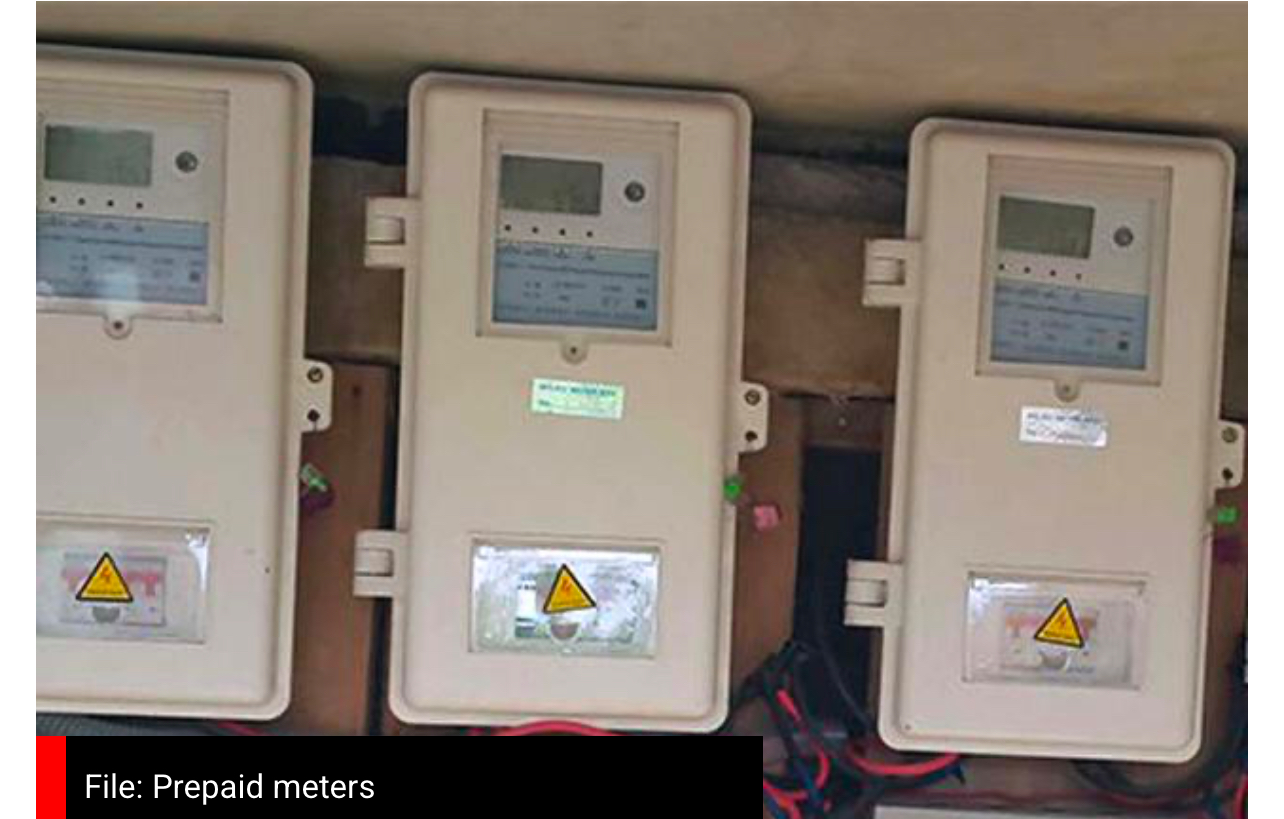
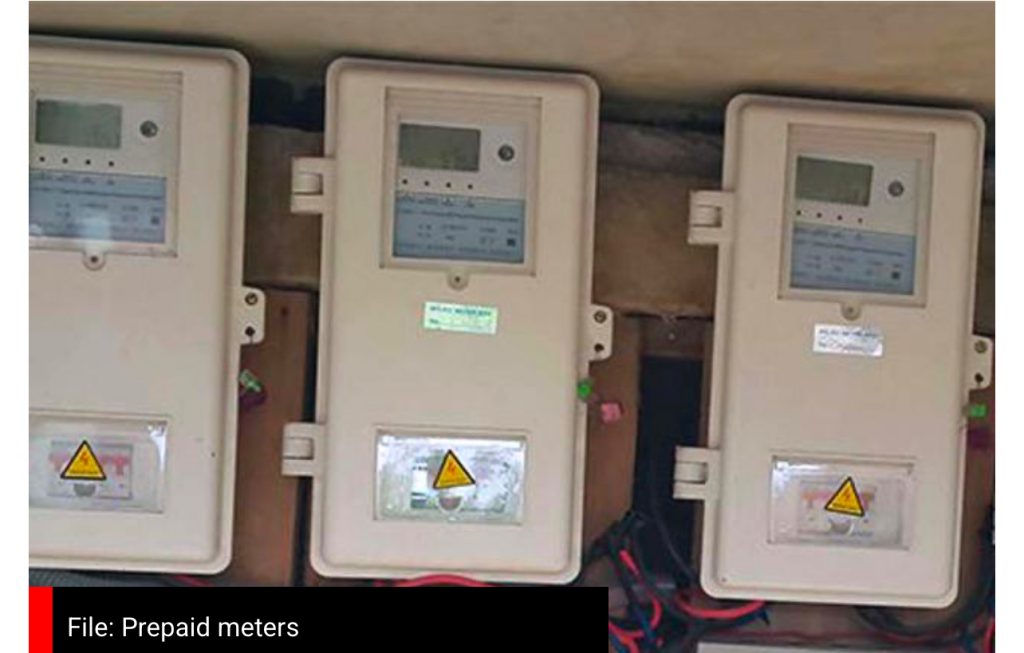
The Federal Government has banned electricity distribution companies and installers from collecting any form of payment for meters, warning that DisCo officials and installers found extorting customers will be prosecuted.
The Minister of Power, Adebayo Adelabu, issued the warning on Thursday during an on-site inspection of newly imported smart meters at APM Terminals, Apapa, Lagos.
Adelabu said the meters were procured under the World Bank–funded Distribution Sector Recovery Programme and must be installed for consumers free of charge, stressing that any demand for money would be treated as an offence.
Adelabu, who was received into the Apapa Port Command of the Nigerian Customs Service by Area Controller Emmanuel Oshoba, expressed happiness over the importation of another tranche of 500,000 smart meters under DISREP.
He said the meters would be given to all electricity customers, regardless of their band. “I want to mention that it is unprecedented that these meters are to be installed and distributed to consumers free of charge—free of charge! Nobody should collect money from any consumer. It is an illegality. It is an offence for the officials of distribution companies across Nigeria to request a dime before installation; even the indirect installers cannot ask consumers for a dime.
It has to be installed free of charge so that billings and collections will improve for the sector.
“The main objective of coming here today is to carry out a physical on-site inspection of shipments of smart meters that the Federal Government has imported under the World Bank-funded Distribution Sector Recovery Programme. This programme is supporting the Federal Government to import a total of about 3.4 million meters in two batches; the first batch is 1.43 million meters, out of which we have received close to about a million meters. Currently, almost 150,000 meters have already been installed across all distribution companies in the country.
“And what we have today is close to 500,000 meters that we just received. They are all smart meters, and I believe that the journey of completely eliminating the meter gap in the Nigerian power sector has just begun,” Adelabu said, even as he expressed dissatisfaction with the pace of metering.
Adelabu was optimistic that in a couple of years, every household, business, and institution would be fully metered so that billings and collections in the power sector would become more transparent, fair, and just. He added that it would also improve the readiness of electricity consumers to pay their bills, leading to improved liquidity in the sector.
“I’m quite excited and elated with what’s happening because it’s unprecedented. This is the first time in the history of this country that a government will be importing and locally buying this number of meters to ensure that the power sector is completely transformed. This is like walking the talk. Our target reform in the sector is not just verbal. Nigerians can see that this is real; it’s not just a promise of the tongue.
“We said it is free. We are not saying this behind closed doors. We are telling Nigerians that the distribution and installation of these meters in every location is free of charge, and it is declared an offence—an illegality—for any DisCo official or installer to request money from the beneficiaries of these meters. We will track and monitor this installation. We also await tip-offs. We have the regulatory commission (NERC), which has offices in some of these locations, and the state regulatory authorities also have offices in each state.
“We are going to open a customer complaint desk whereby, if you notice any such requests for illegal money, you report it, and the authorities will follow up. We are not leaving the installation to the DisCos alone; we’re also creating an interface between the installers and consumers to accelerate the pace of installation. We have some issues with the data and addresses of unmetered customers. We are working hand-in-hand with the DisCos to ensure clean data so that we can accelerate installation.
“We also want to maintain a register whereby unmetered customers can register their names. Once we have a list, we will validate it with the DisCos, improving the pace of installation. We are looking for confirmed cases of requests for money by any DisCo official or installer. Nigerians will know what we can do, and it will serve as a deterrent for others not to commit such an offence or illegality. That’s the plan.
“Extortion is not allowed, but there must be confirmed cases of such extortion, and the officials involved—no matter how high—will be prosecuted. It will be publicised and serve as a deterrent to others with similar intentions. We will not allow that. This is a government effort, and no activity of a DisCo or installer should frustrate government efforts to ensure that life is made easy for Nigerians and that we have a stable, reliable, and functional power sector,” he said.
Adelabu added that the Tinubu administration is resolving a decades-long problem that has affected liquidity. “But the boldness, courage, and political will of the government to go ahead with this should be commended. We will track it end-to-end to ensure that the government’s effort is well implemented and our desired objectives are achieved.
“The aggregate meter gap covers all categories of customers. We are not discriminating. We are prioritising every Nigerian, every customer, every electricity user. The issue of Band A, Band B, or Band C is temporary; it is our systematic way of ensuring this reform reaches everyone. The meters will be given to all levels of customers and not restricted to a single band. I am committing to that,” he stressed.
As journalists expressed doubts over the possibility of free meter distribution to customers, the Director-General of the Bureau of Public Enterprises, Ayo Gbeleyi, stated that the bureau coordinates the implementation of the Distribution Sector Recovery Programme on behalf of the Federal Government and serves on the boards of all 11 electricity distribution companies.
Gbeleyi said, “Regarding concerns that DisCos are delaying meter installations, you will soon see a new order or circular from the Nigerian Electricity Regulatory Commission prescribing the protocols and processes DisCos must follow to ensure unhindered access for meter installations.
“We are monitoring this. We have our dashboard, trackers, and all stakeholders’ hands on deck to ensure seamless and rapid deployment of these meters. One more thing—the meters here are manufactured to the specific requirements of each DisCo. They are inscribed on the meter, with an anti-theft protocol embedded. The configuration is for a particular DisCo, so a meter configured for Eko DisCo cannot be installed in Ibadan.”
Speaking, the Chairman of Mojec, Mojisola Abdul, said the meters supplied by the Federal Government are designed to genuinely generate more revenue for the country and supply more power.
“I’m telling you, physically, we have installed almost 150,000 meters, and they are free. Don’t give anybody money. You are not allowed. We had a meeting Wednesday with the minister and the DG of BPE about further progress on making it easy for every Nigerian. We are calling it mobile registration of free meters. If you register today, your meter will be installed within three days,” she said.
On the delay in meter installations after months of application and payments made, the minister reassured, “This is our country. It is valid that there will be apprehensions and reservations because of past experiences. Previously, there was limited meter availability, and payment was required.
“But this programme has two advantages: first, the volume is now sufficient—we have received almost 1 million meters, with another 1.55 million meters coming in the second phase. Second, the meters must be installed free of charge. The complications experienced in the past will be completely eliminated. We had a meeting on Wednesday for almost two to three hours to discuss all existing complications and foreseeable difficulties, and I assure you we already have effective solutions to all these problems.”
Adelabu also visited the National Meter Test Station in Oshodi, where meters are tested by the Nigerian Electricity Management Services Agency to ensure they meet required standards. Nigeria currently has over five million customers under estimated billing.
news
Impeachment Saga : Rivers Chief Judge Acknowledges Assembly’s Submissions Against Fubara
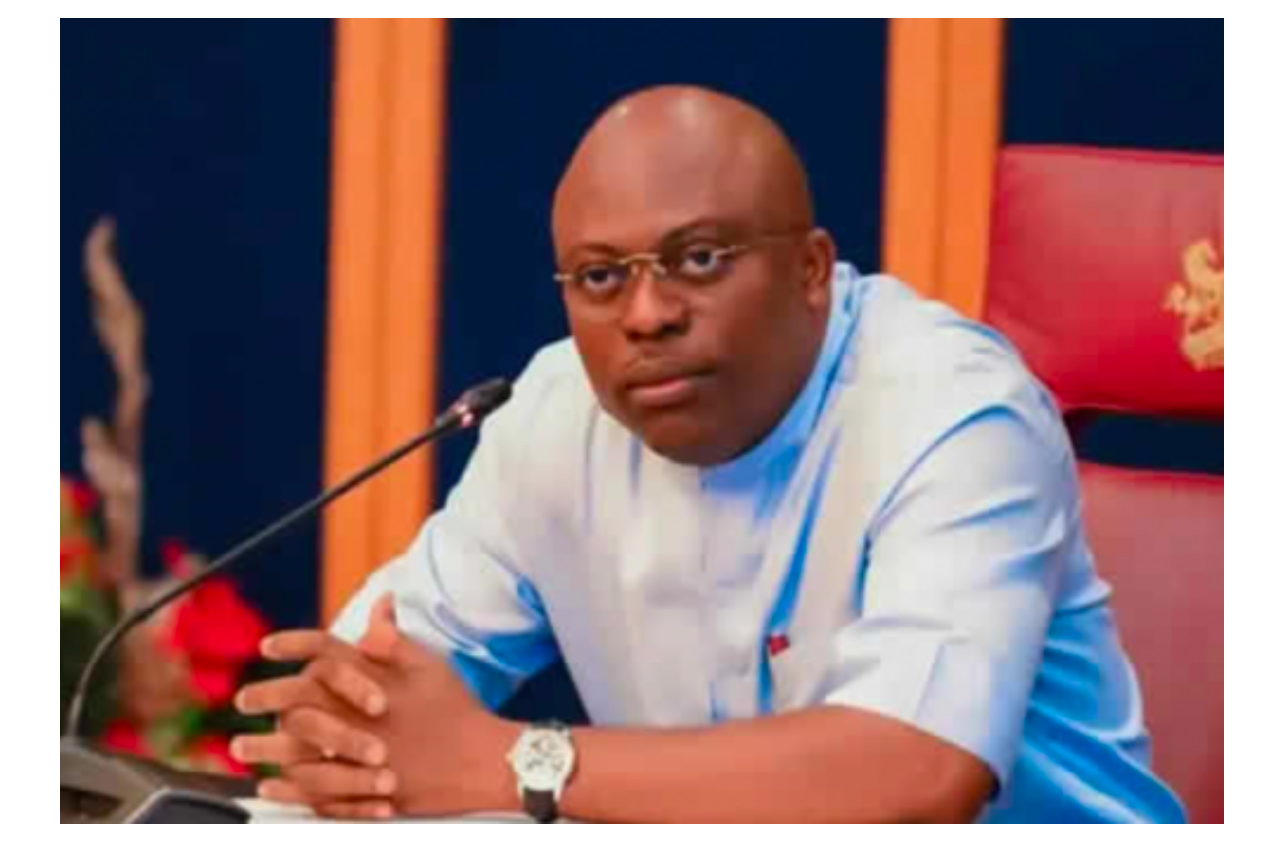
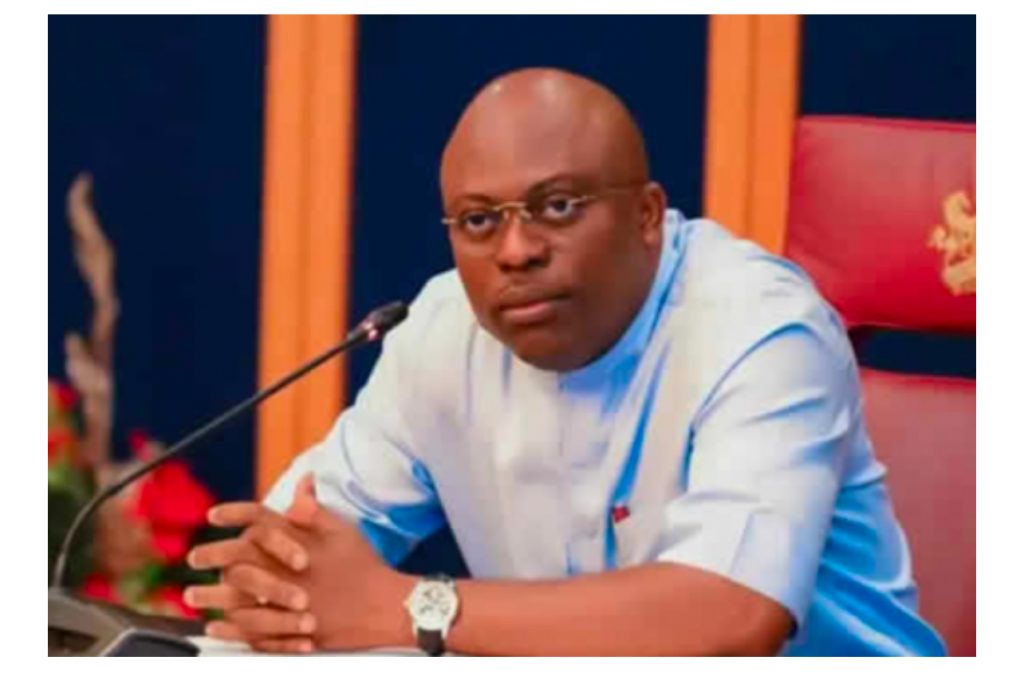
….Gov throws jibe, describes impeachment notice as ‘love letter’
Vows to avoid actions capable of breaching peace
The office of the Rivers State Chief Judge, Justice Simeon Amadi, has received the letter from the State House of Assembly requesting him to constitute a seven-man committee to probe the allegations of gross misconduct leveled against the state Governor, Sir Siminalayi Fubara and his Deputy, Prof. Ngozi Odu.
The House of Assembly Committee Chairman on Petitions, Information and Complaints, Dr Enemi George, confirmed that the Chief Judge had acknowledged receipt of all the documents.
Also received by the CJ’s office were other documents detailing the allegations of gross misconduct against the governor and the deputy governor, copies of the Rivers State Impeachment Panel (Conduct of Investigations) Procedure 2025 and photocopies of The Nation, The Guardian and The Sun, among others.
George said: “It is important to inform the good people of Rivers State that Mr. Speaker has already complied with the Constitution and letters sent by him to the Chief Judge have been received and acknowledged.
“All relevant documents including the Notices of Allegations of Gross Misconduct were attached”.
He added: “Every step going forward, what can happen or what cannot happen is clearly stated in Section 188 of the Constitution.
“The good people of Rivers State should remain calm and should not listen to those who want to truncate our democracy.”
He commended and thanked the good people of Rivers State for their support and prayers for the 10th Assembly in particular and Rivers people at large.
The Rivers State High Court sitting in Oyigbo Local Government Area has however issued an interim injunction restraining the CJ from receiving, forwarding, considering or acting on any request, resolution, articles of impeachment or any form of communication from Speaker Martin Amaewhule and other members of the State House of Assembly for the purpose of constituting a panel to investigate the alleged misconduct against the governor and his deputy.
They just landed me a ‘love letter’, says Fubara
Governor Fubara, in a veiled reference to the impeachment notice, called it a love letter.
“This 2026 that I thought would have been the finest, they just landed me a love letter,” he said while speaking as special guest during the finals of the 2026 Port Harcourt Polo Tournament in Port Harcourt, the Rivers State capital.
He added:”That notwithstanding, we must move on and carry on the responsibilities as a government. We will continue to support everyone who means well for Rivers State.”
He vowed that he would not support, directly or indirectly, any action capable of undermining peace and safety in the state.
He insisted that the protection of lives and property remained the primary responsibility of his administration.
He emphasised that he remained the governor of the state and would continue to deliver on the promises made to the people.
Fubara expressed satisfaction that the 2026 Port Harcourt Polo Tournament was held for one week without any incident.
He described the peaceful conduct of the event as a clear indication that Rivers is safe for residents, visitors and investors.
A supporter of the governor, Amb.Chijioke Ihunwo, asked the assembly members to perform their functions independently.
He pleaded with President Tinubu to intervene on the matter, insisting that the governor had done nothing to warrant his removal.
He said: “This assembly must remain independent to allow peace to prevail in the state.
“Governor Fubara has done nothing to warrant his removal. President Tinubu should intervene in this matter as the leader of the party.”
The high powered committee set up by the Pan Niger Delta Forum (PANDEF) to reconcile the feuding sides in the Rivers imbroglio is said to be working round the clock to stop the planned impeachment.
The committee members have already met with Federal Capital Territory (FCT) Minister Nyesom Wike in Abuja and separately with Fubara and some other stakeholders.
news
Alleged Arms Discovery: Malami Faces DSS Probe as EFCC Denies Victimisation
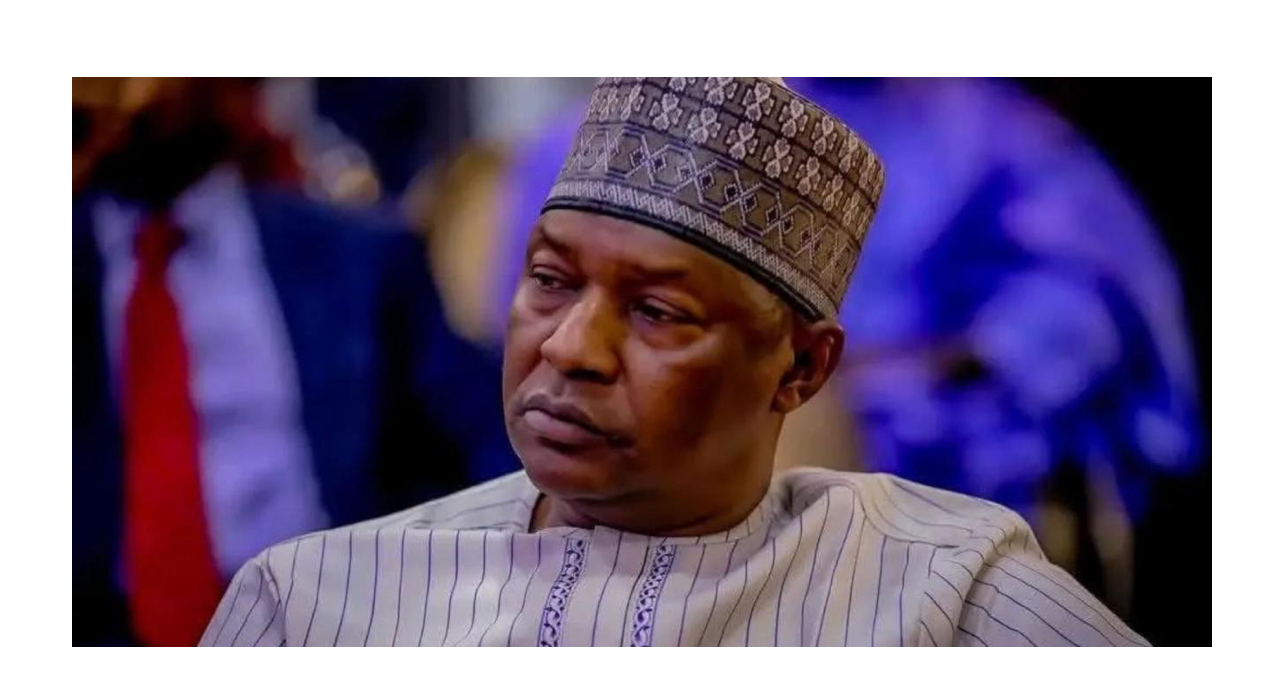
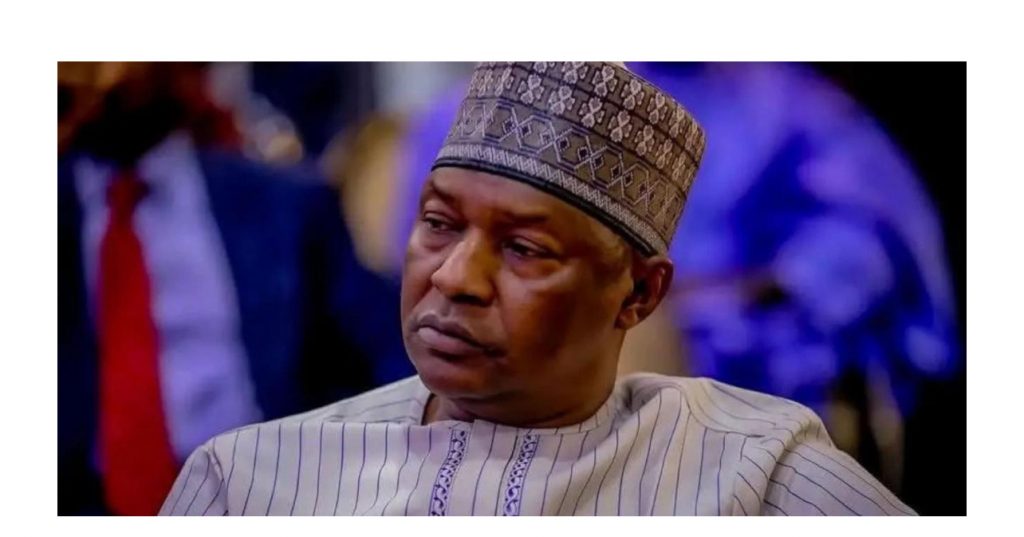
Economic and Financial Crimes Commission (EFCC) chairman Ola Olukoyede has faulted the persecution claim by the immediate-past Attorney-General of the Federation and Minister of Justice, Mallam Abubakar Malami (SAN).
He described it as unfortunate that some Nigerians were buying into the narrative when Malami’s probe started before his appointment.
Malami is standing trial alongside some family members on 16 counts of money laundering involving about N8.7 billion.
Speaking on a national television yesterday, Olukoyede dismissed Malami’s claim of vendetta against him, saying the commission has not wavered in investigating and prosecuting those suspected to have been involved in corruption cases.
“There’s nothing like that. The particular case predated my appointment. And, I didn’t give a nod to initiate proceedings until I found that we have a water-tight investigation,” he said.
The EFCC boss denied being indicted by Justice Ayo Salami’s panel.
Olukoyede said: “I challenge those making such claims of indictment against me by Justice Ayo Salami Panel to publish the report.
“Let me tell Nigerians that the commission’s investigation panel cleared me of any wrongdoing. The presidency at the time also cleared me. Also, the law enforcement agencies handed me a clean bill.
“I can say clearly that there’s no report anywhere that I’ve been involved in any fraudulent dealings, whether as the commission’s chief of staff, secretary, and now, the chairman of the commission.”
Noting that the commission, under his watch, made notable achievements last year, he said: “Our big win in 2025 was our ability to review and revive old cases that Nigerians thought were dead.
“Some of the cases affect past governors and ministers, and many such cases are in courts.
“We were able to recover assets. Nigerians are aware of the Lokogoma assets. One major recovery was a university.”
The EFCC recovered Nok University in Kachia, Kaduna, after a court ordered its final forfeiture because it was built with stolen public funds by a former civil servant.
It was converted to the Federal University of Applied Sciences,
Immediate-Past Attorney-General of the Federation and Minister of Justice, Mallam Abubakar Malami (SAN), is facing a fresh investigation over the arms and ammunition found in his house.
Newsthumb learnt that the arms were uncovered at his Kebbi country home by the operatives of the Economic and Financial Crimes Commission (EFCC) during a search.
The anti-graft agency, it was further learnt, handed them over to the Department of State Service (DSS) for a comprehensive probe because it is not within its remit to do so.
The number of arms and ammunition could not be immediately ascertained, but it was gathered that they are high in number to attract a full DSS investigation.
Malami, who was granted bail last week along with his sons – Abdulaziz, Abiru-Rahman, and others – is still in the Kuje correctional centre, having been unable to perfect his bail conditions.
But, sources said he might be taking things slowly to stall the DSS investigation into the weapons found in his house.
“The former minister is being separately investigated for allegedly having arms in his house in Birnin Kebbi. The inventory of the shock find has been handed over to the DSS.
“It is now left to Malami to explain to the DSS how he came about the arms. That’s why he is yet to perfect his bail conditions. He is holed up in prison to avoid arrest by the DSS.
“DSS operatives are within the precincts of Kuje Correctional Service to invite Malami. He got wind of their presence and raised the alarm. But the law must take its course.”
Another source within the EFCC said Malami had yet to meet his bail conditions.
“By our records, the ex-AGF is still in custody. We saw all manners of fake clips on social media on his purported arrival and rousing reception in Kebbi State,” the source said.
The source added: “The investigation into Malami’s activities during his tenure began when former EFCC Acting Chairman Ibrahim Magu was in office.
“Investigation continued through the administration of another Acting Chairman, Ibrahim Chukkol, to the present Executive Chairman. Chukkol, who works in the agency, was in charge briefly before Olukoyede’s appointment.
“There is nothing vindictive about his investigation since 2019. It is an inherited case, and the ex-AGF knows this.”
Olukoyede confirmed that he inherited the Malami case during an interview last night on a national television.
A Federal High Court in Abuja last week ordered the interim forfeiture of 57 assets linked to Malami and his two sons.
The assets have been valued at N213, 234,120,000.
The court has, however, given Malami and the sons or any other claimant a 14-day leave to show proof that the assets were legally acquired.
Failure to present legitimate claims within 14 days may lead to the permanent loss of the assets to the Federal Government.
The court’s order was based on the invocation of the Non-Conviction Asset Forfeiture Clause in the EFCC Establishment Act.
The EFCC had applied to the Federal High Court to seize the suspicious properties in Abuja, Kano, Kaduna, and Birnin-Kebbi.
-

 news5 years ago
news5 years agoUPDATE: #ENDSARS: CCTV footage of Lekki shootings intact – Says Sanwo – Olu
-

 lifestyle6 years ago
lifestyle6 years agoFormer Miss World: Mixed reactions trail Agbani Darego’s looks
-

 health5 years ago
health5 years agoChairman Agege LG, Ganiyu Egunjobi Receives Covid-19 Vaccines
-

 lifestyle4 years ago
lifestyle4 years agoObateru: Celebrating a Quintessential PR Man at 60
-

 health6 years ago
health6 years agoUPDATE : Nigeria Records 790 new cases of COVID-19
-

 health6 years ago
health6 years agoBREAKING: Nigeria confirms 663 new cases of COVID-19
-

 entertainment12 months ago
entertainment12 months agoAshny Set for Valentine Special and new Album ‘ Femme Fatale’
-

 news8 months ago
news8 months agoBREAKING: Tinubu swears in new NNPCL Board


